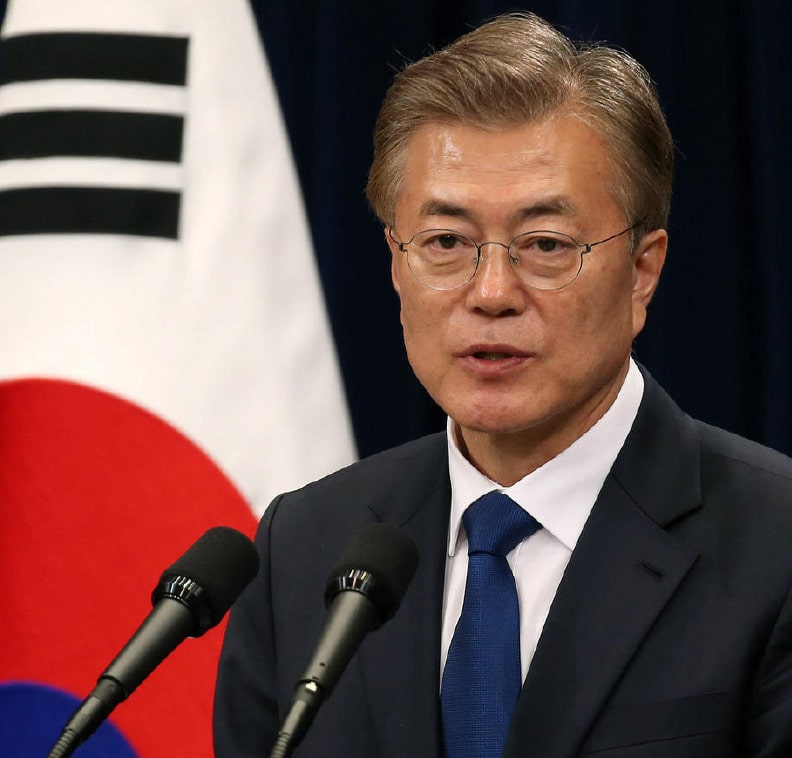With tensions between the United States and North Korea at an alarming level over North Korea’s growing nuclear capability, North and South Korea have suddenly started talking to each other. In fact, things are getting downright cozy between the two.
It started at the Winter Olympics, where the two Koreas fielded a joint team. This was followed up by an elaborate dinner meeting in Pyongyang where Kim Jong-un said he wanted to “write a new history of national reunification.” Now the two former bitter rivals are engaging in cultural exchanges, and Kim (AKA “Little Rocket Man”) has offered to sit down with President Trump to discuss de-nuclearizing the Korean peninsula.
Trump has accepted Kim’s offer, and the meeting is expected to take place sometime in May. The U.S. appears to have been caught off-guard by the warming relations between North and South Korea, and had to remind South Korea’s president Moon Jae-un, the son of North Korean refugees and an advocate for closer ties between the two countries, that no substantive discussions could take place without the U.S. at the table.
Many foreign affairs experts are cautioning Trump that the North Koreans can’t be trusted and Kim is up to something. But the U.S. has to go along with this rapprochement or appear to be the war-monger.
Could South Korea be suffering from Stockholm Syndrome — a condition in which hostages develop an alliance with their captors? The syndrome gets its name from an incident in Stockholm, Sweden, in 1973 when four hostages were taken during a foiled bank robbery. A six-day standoff between the robbers and the police ensued. The hostages feared for their lives if the police decided to storm the bank.
As negotiations between the police and the bank robbers dragged on, the hostages developed a psychological alliance with their captors. And when they were released and the robbers arrested, they refused to testify against them in court, and instead began raising money for their legal defense.
South Korea is, in effect, being held hostage by North Korea. North Korea’s goal is to get the U.S. off the Korean peninsula, and to this end it has developed nuclear weapons capable of reaching cities in the United States. Trump and his advisors have said this is intolerable, and threatened to launch a pre-emptive strike to take out North Korea’s nuclear arsenal — even though this would surely result in hundreds of thousands of South Korean deaths and massive destruction in and around Seoul, South Korea’s capitol, which is located just 25 miles from the demilitarized zone. Thus, when the U.S. threatens a preemptive strike, it’s like the police in Stockholm, Sweden, threatening to storm the bank, which would have meant almost certain death for the hostages.
Trump’s tough talk and Tweets may be aimed at Kim Jong-un, but they are also heard in South Korea. And the message they send is that the United States is willing to sacrifice millions of lives in South Korea in order to eliminate the nuclear threat to U.S. cities. If I were a South Korean, I would be wondering if it was not time to send the U.S. troops home and try striking a deal North Korea — especially if the deal was backed up by assurances from China.
If this is the case, Trump may be confronted with a fait accompli when he sits down to negotiate with Kim Jong-un, with the real negotiating going on right now among North Korea, South Korea and China. Withdrawing our forces from South Korea would fit with Trump’s recent announcement that he is withdrawing our troops from Syria and turning that country over to Russia and Iran.
But if we pull our troops from the Korean peninsula because South Koreans feel more secure with China guaranteeing their existence than with the U.S. as their shield, the move will have repercussions in Japan, the Philippines, Indonesia and other nations around the Pacific rim where China is attempting to extend its influence by projecting its military power. (China just added two aircraft carriers to its navy, and is building artificial islands that function as stationary aircraft carriers).
China believes the way to deal with Trump is with flattery and by playing to his ego; this became clear when the president visited China last November. Could Trump pass up the prospect of sharing a Nobel Peace Prize with Little Rocket Man in October, right before the mid-term elections?

















Comments are closed.